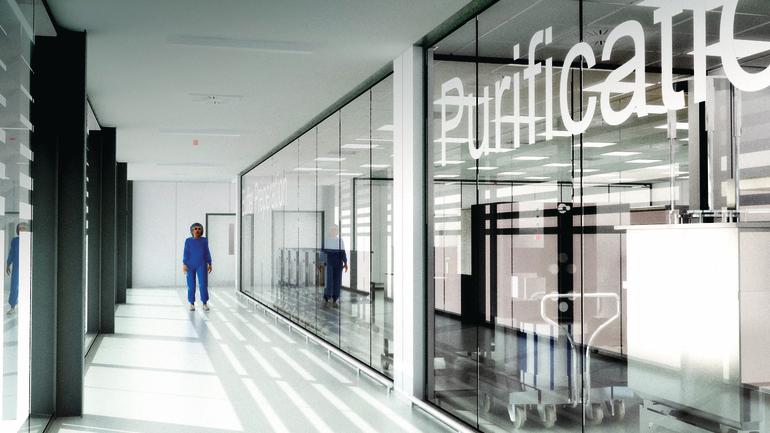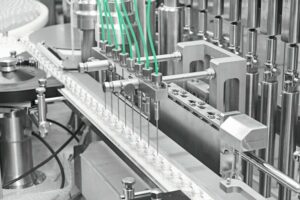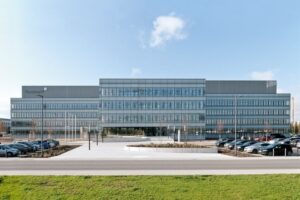Many companies are changing over their portfolios from a few high-volume prod-ucts to many low-volume products. There is therefore a need for more flexible and scalable facilities. “Bio on demand”, developed by NNE Pharmaplan, is a standard facility concept that meets most of tomorrow’s needs for low-to- medium volume flexibility.
Authors Niels Guldager Senior Technology Partner Biopharmaceuticals, NNE Pharmaplan Gert Moelgaard Vice President Strategic Development, NNE Pharmaplan
Bio on demand is a facility standard for biotech manufacturing based on single-use technology. The standard is a flexible basic concept for fast configuration of biotech facilities. The philosophy integrates flexibility by applying open architecture principles to both building construction methods and equipment supplies, so that it is independent of any proprietary software and hardware solutions.
The Bio on demand standard employs configurations with single-use process equipment to reduce investment costs and provide strategic flexibility. Main bioreactor volumes of typically 1000 or 2000 l represent the present state of the art. Capacity demands are met by adding bioreactors to the standard configuration. Hybrid solutions with stainless steel technology for selected process steps can be realised to improve variable costs or accommodate steps where single-use technologies could still have limitations.
The mega-trend towards smaller scale manufacturing is evidenced in NNE Pharmaplan’s accumulated experience with a dozen Bio on demand type facility projects in the last five years. These projects show that the flexibility and open architecture philosophy provide a robust basis for meeting diverse demands in line with the new situation. The experience from these projects is that all of these biotech business cases placed little emphasis on the construction method itself. Much more important were flexibility, adaptability and configurability to satisfy varying production needs. Half of the projects confirmed that continuous manufacturing is a strong, emerging biotech trend. The automation strategies ranged from integration with existing, customer-preferred automation platforms to stand-alone islands of automation solutions.
Future directions
Smaller scale biotech manufacturing facilities will continue to go on-line as processing technologies evolve and the industry adjusts to a demand for more flexible production capability. Experience shows that flexibility, configurability and adaptability are key criteria in the facility strategy. Continuous manufacturing concepts will introduce a sub-category of even smaller and more cost efficient biotech facilities. Advanced automation strategies will play a central role in the migration from clinical to market supply applications and will also be crucial for realising operator-free, fully continuous working.
Hall 3.1, Booth F57
cpp-net.com/0215466
Share:







